Navy videos spark renewed interest in UFOs from enthusiasts and Congress
Congress wants to see what the U.S. government knows about UFOs.
This year's World UFO Day comes at a time of heightened interest in the decades-long search to solve the mystery of Unidentified Flying Objects (UFOs) thanks to the Navy's recent declassification of videos that show what it called "unexplained aerial phenomena," but it's not just UFO enthusiasts who are excited. Congress also wants to see what the Pentagon and the nation's intelligence agencies know about UFOs, not because extraterrestrials are involved, but because of concerns they might represent advanced technological threats from foreign adversaries.
The Navy declassified three previously leaked top-secret U.S. Navy videos in late April in an effort "to clear up any misconceptions by the public on whether or not the footage that had been circulating was real or whether or not there is more to the videos," said Susan Gough, a Pentagon spokesperson.
"The aerial phenomena observed in the videos remain characterized as 'unidentified,'" the spokesperson added.
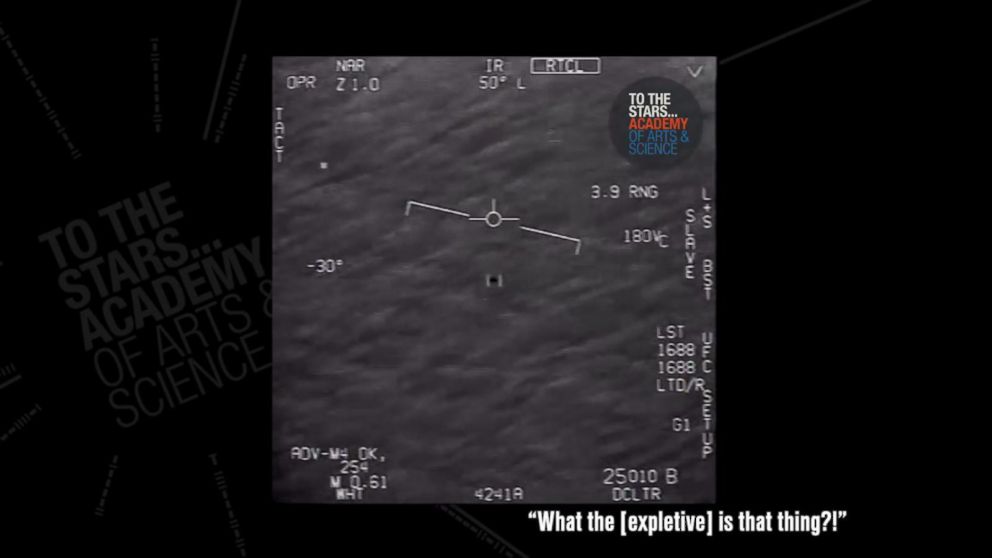
First published by the New York Times in 2017, the videos captured what Navy F/A-18 fighter pilots saw on their video sensors during training flights in 2004 and 2015 off the coast of California. Even more compelling was the audio of the pilots' reactions to the fast-moving objects and maneuvers they saw on their screens.
The release of the Navy videos has sparked renewed interest from UFO researchers and the nation's lawmakers who want to know what else the U.S. government knows about UFOs and whether they might represent technological breakthroughs from America's adversaries.
Two weeks ago, the Senate Intelligence Committee included language in the annual Intelligence authorization bill that would require U.S. intelligence agencies and the Pentagon to put together a detailed unclassified analysis of all the data they have collected on "unidentified aerial phenomenon."
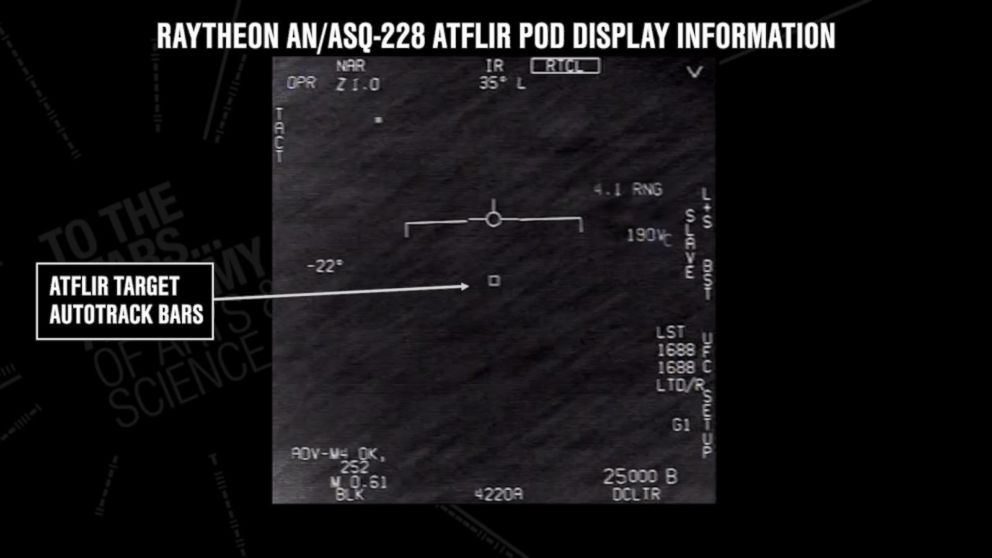
"The Committee remains concerned that there is no unified, comprehensive process within the federal government for collecting and analyzing intelligence on unidentified aerial phenomena, despite the potential threat," the committee said in a description of the bill entitled "advanced aerial threats."
"The Committee understands that the relevant intelligence may be sensitive; nevertheless, the Committee finds that the information sharing and coordination across the Intelligence Community has been inconsistent, and this issue has lacked attention from senior leaders," it added.
The analysis requested by the committee would include information gathered from geospatial intelligence, signals intelligence, human intelligence and even FBI data from "investigations of intrusions of unidentified aerial phenomena data over restricted United States airspace.”
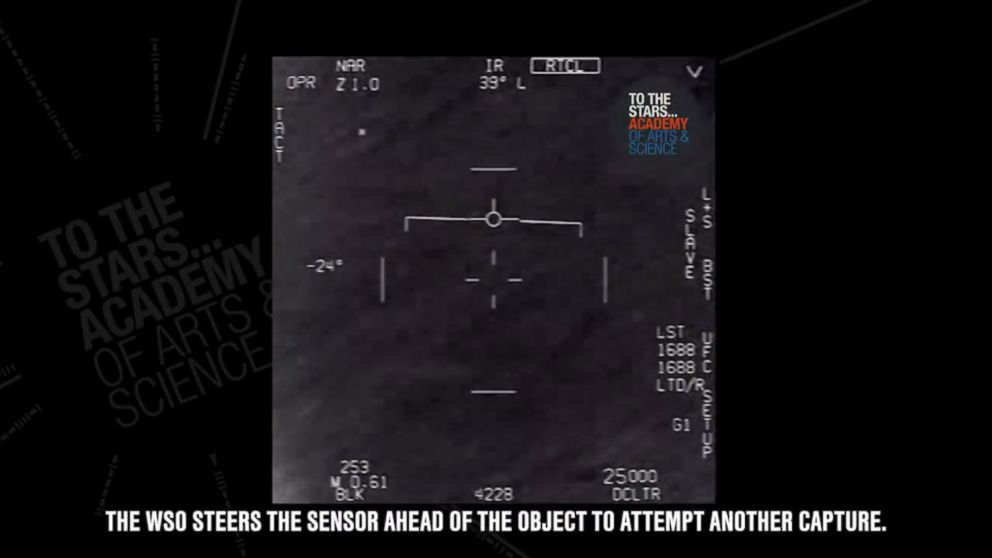
The committee also disclosed that a previously unknown "Unidentified Aerial Phenomena Task Force” was operating within the Office of Naval Intelligence, which appears to be investigating UFO reports. The task force's existence was a surprise because it was believed that the Pentagon had ceased investigating such reports in 2012 with the end of a program that was made public by the same New York Times article that published the three leaked Navy videos.
If the legislation requiring the report is passed by the full Senate and is also included in the House version of the bill, the intelligence agencies and the Pentagon would have to provide the report six months from final passage of the bill.
While UFOs have been tied to the existence of extraterrestrials for decades, for some UFO enthusiasts, the new public and congressional interest are indicative that attitudes could be changing about what has been seen as a fringe concept.
"Strictly speaking, there should no longer be any debate about the existence of UFOs at all," Alexander Wendt, an international relations professor at Ohio State University, told ABC News. "If it wasn't already apparent to everyone that UFOs are real, the Navy confirmed the existence of at least three of them officially."
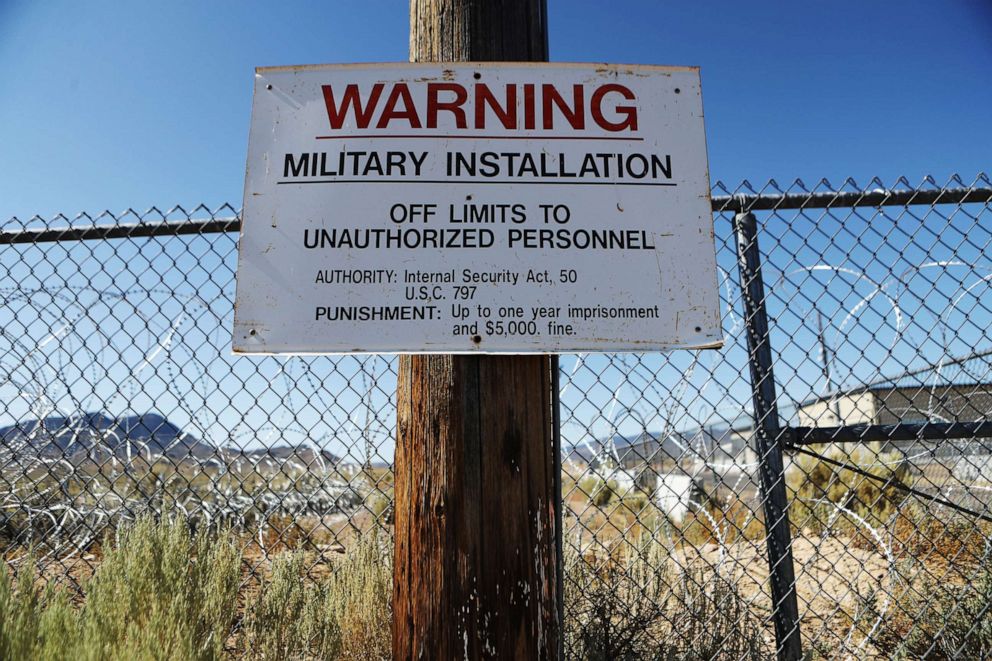
Wendt, who has written about UFOs in the context of political and security implications, wants to see more videos released by the U.S. military, but he wants to see the scientific community undertake serious research on a subject matter that remains taboo to many scientists.
"The crucial issue is getting some science done on these things," said Wendt. "Since while new videos will undoubtedly be surprising, until we have some UFO science, we won't know what we're dealing with, if anything."
But Wendt believes the videos only prove the existence of UFOs, not the existence of extraterrestrials, which he says are "a complete unknown."
But one person who does not appear to be convinced that Navy pilots have encountered UFOs is President Donald Trump.
Last year, Trump told ABC News' George Stephanopoulos that he was skeptical of the reports.
"I want them to think whatever they think," said Trump. "They do say, and I’ve seen, and I've read, and I’ve heard. And I did have one very brief meeting on it. But people are saying they're seeing UFOs. Do I believe it? Not particularly."
Asked if he thought he would know if there were a case of extraterrestrial life, the president replied, "Well, I think my great pilots would know. Our great pilots would know."
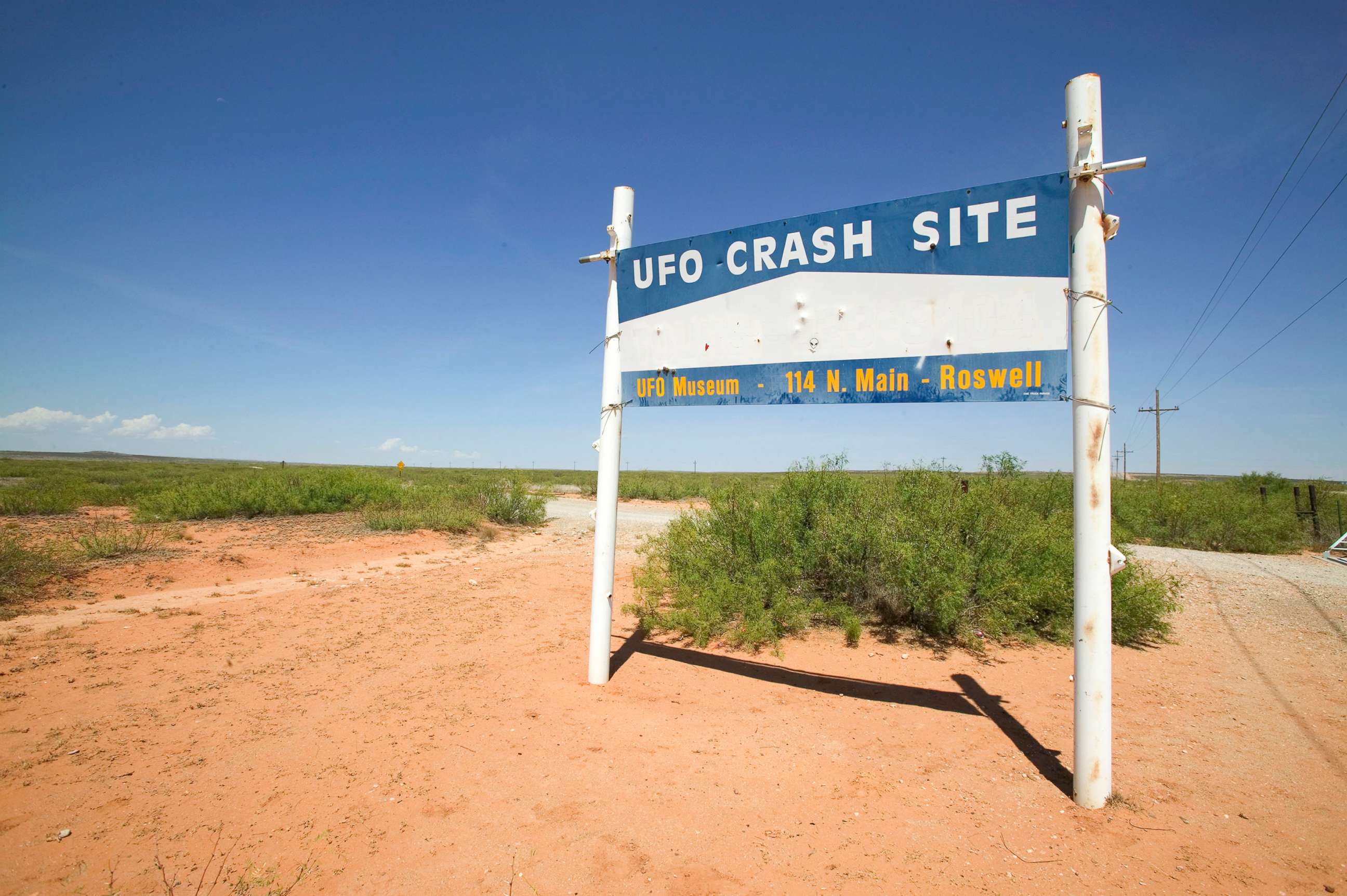
"They see things a little bit different from the past. So we’re going to see. We’re watching, and you’ll be the first to know," he continued.
But two weeks ago Trump made some intriguing comments about Roswell, New Mexico, the site one of the most famous claims about UFOs and extraterrestrials.
In 1947, a rancher discovered unidentifiable debris near Roswell that led to speculation that it was a crashed UFO. The Air Force later acknowledged that it was a weather balloon though decades later it acknowledged the balloon was part of a project intended to detect Soviet atomic bomb tests.
But conspiracy theorists continue to believe that not only did a UFO crash at Roswell, but that the government also recovered the remains of extraterrestrials who were aboard.
During an interview with his father, Don Trump Jr. jokingly asked if the president would ever divulge more information about Roswell to "let us know what's really going on."
Trump responded, “I won’t talk to you about what I know about it, but it’s very interesting.”
Asked if he might declassify that information someday, Trump responded, "Well, I’ll have to think about that one.”
World UFO Day is celebrated every year on July 2, the day in 1947 when the Roswell incident first became public.



